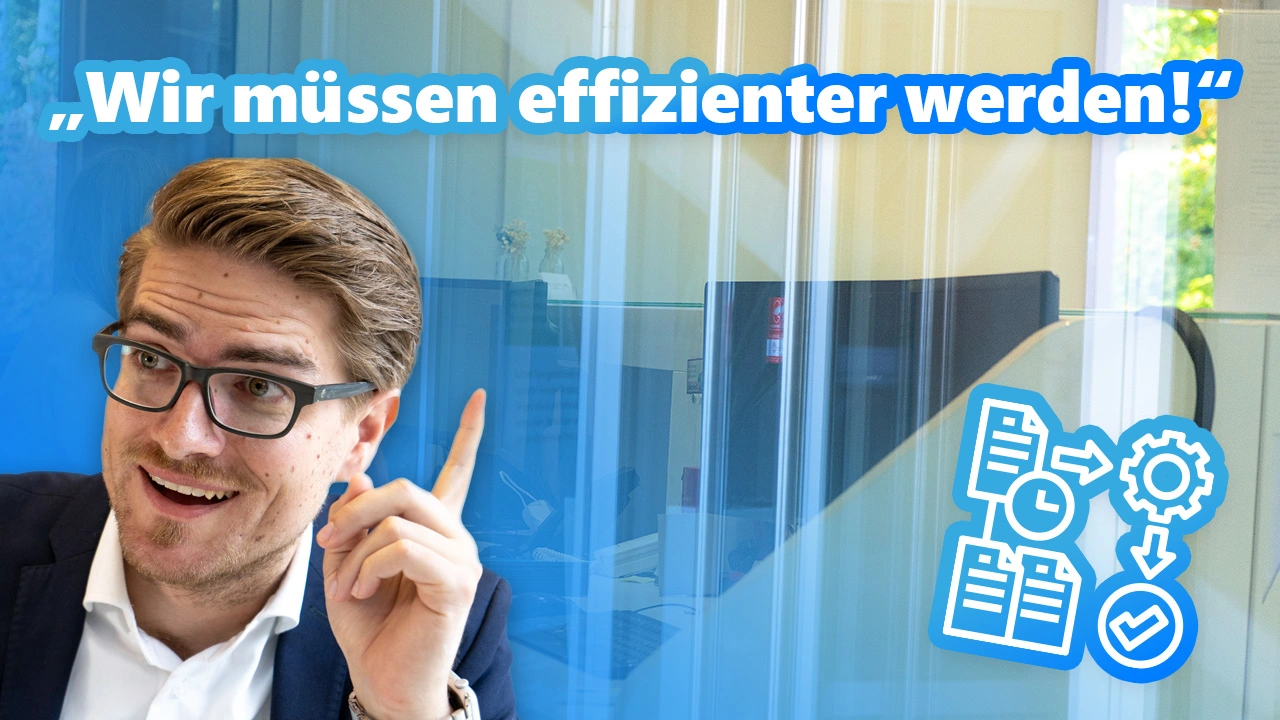Process automation - why companies should rethink their processes
Many companies recognise that their processes need to be revised in order to work more efficiently. But why is this the case? It is often the increasing demands on efficiency and quality that emphasise the need for action. At the same time, the shortage of skilled labour is exacerbating the situation, as there are no longer enough qualified employees available. In addition, manual processes are often prone to errors and customers increasingly expect faster processing times.
Every day, employees spend valuable working time moving files, writing emails, obtaining authorisations and processing requests. There is a solution that not only saves time, but also improves the quality of work: Process automation.
About the author

Why companies should rethink their processes
Many companies recognise that their processes need to be revised in order to work more efficiently. But why is this the case? It is often the increasing demands on efficiency and quality that emphasise the need for action. At the same time, the shortage of skilled labour is exacerbating the situation, as there are no longer enough qualified employees available. In addition, manual processes are often prone to errors and customers increasingly expect faster processing times.
Every day, employees spend valuable working time moving files, writing emails, obtaining authorisations and processing requests. There is a solution that not only saves time, but also improves the quality of work: Process automation.
What is process automation and how does it work?
Process automation means using software and automation tools to take over recurring tasks. However, not every process is equally suitable for this. It is therefore important to specifically identify the processes that offer a positive return on investment - i.e. that promise a higher value for the company than the costs incurred for automation.
This is how we analyse the process

Prioritisation of processes
If it is already known which processes are particularly time-consuming or error-prone, these can be prioritised. If not, we help to identify the right processes by analysing factors such as throughput times, frequency and error rates.

Optimisation before automation
Before processes are automated, we check whether they are already fully developed or whether unnecessary coordination loops can be removed.

Realisation of automation
The individual activities are transferred to automated workflows. This means that enquiries can not only be answered automatically, but also forwarded directly to the right place. Information is systematically transferred to internal systems without the need for manual input. Invoices can be created and linked automatically on the basis of the associated quotations, reducing errors and speeding up the invoicing process. Authorisation processes can also be made more efficient by automating approvals instead of time-consuming email coordination.
Where process automation really makes sense
Whenever employees say: "Then I always enter this here", "Then I always move the document there", or "Then I always inform person XY", this shows that it is a recurring activity. It is precisely these steps that can be automated by software so that employees can concentrate on tasks that require their expertise.

Does automation replace employees?
Clearly: No. However, tasks that used to pass through three hands now only need to be viewed by one person. This frees up resources that can be utilised elsewhere to add value. It also relieves companies of the pressure of having to act immediately on the labour market when someone retires because the freed-up resources can be distributed differently. Automation therefore relieves employees of repetitive tasks, but it does not completely replace human expertise. For example, there are situation-dependent decisions that an algorithm cannot make, such as special customer discounts or customised solutions to problems.
Do you have any questions?
Let's optimise your processes together! If you would like to find out whether process automation is worthwhile for your company, please arrange a non-binding consultation. Together we will analyse your workflows and develop a strategy that saves time, reduces errors and increases your efficiency.
Get in touch - we look forward to shaping the future of your processes with you!




